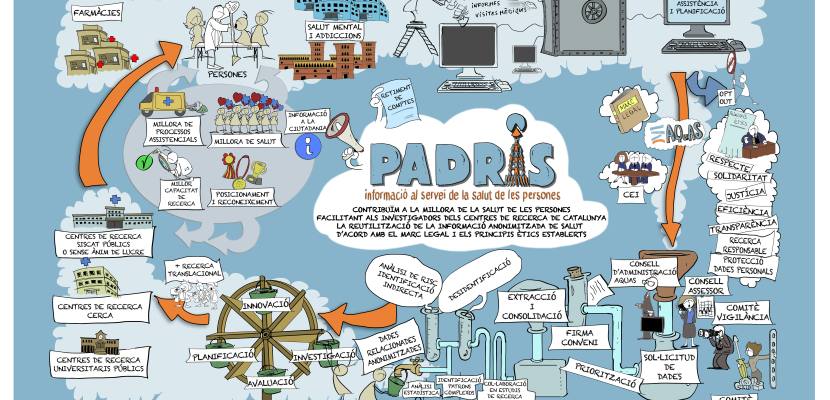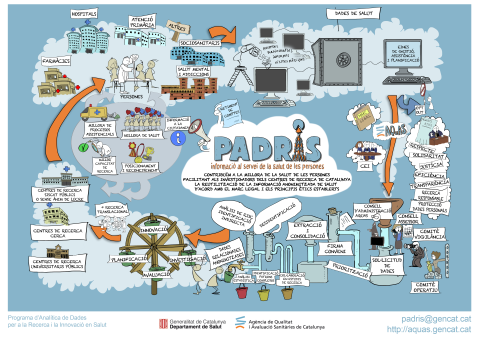
Data analysis for R&D in projects in health: the PADRIS project

About this good practice
The Data Analytics Program for Research and Innovation in Health (PADRIS, from its acronym in Catalan) has the mission of making health-related data available to the scientific community to drive research, innovation, and health assessment through access to the reuse and cross-referencing of health data generated by the comprehensive public healthcare system of Catalonia (SISCAT), in accordance with legal and regulatory frameworks, ethical principles, and transparency towards the programme's citizens. Each year, R&D institutions present projects that require the use of data and these projects are assessed by a committee; its members put special attention to the relevance and potencial of knowledge/technology transfer to society, the industry, and/or the public health system itself. Selected projects are given access to the data (as if it was a "subsidy of data") for their R&D undertakings. On top of that, the programme subsidises the cost of a data scientist (2 to 4 months full-time equivalent) to help the team implementing their projects through the use of data.
Expert opinion
Resources needed
While the budget of the programme depends on the yearly operational resources, data is provided to the R&D insitutions at no added cost (besides data management) to the administration. Awarded projects have the support of a data scientist, which is the actual main cost of the programme.
Evidence of success
The programme awards a number of projects every year, all of them with high potential for transfer. The list of beneficiaries is available on the programme's website, where more information can be found. The programme was especially relevant in the period 2020-2021, when several projects were awarded to develop data-based R&D projects to fight agains the SARS-CoV-2/Covid-19.
Potential for learning or transfer
The programme has potential to be transferred from two different perspectives: (1) territorial, that is, it can be replicated (introducing the necessary changes) in other regions and countries; and (2) sectorial, since R&D projects that require data are common to most knowledge/industrial domains/sectors. Specifically, the elements that can be of special interest are the design of the programme, the mechanisms to select the awarded projects, and the exploitation of the results.
Further information
Images

